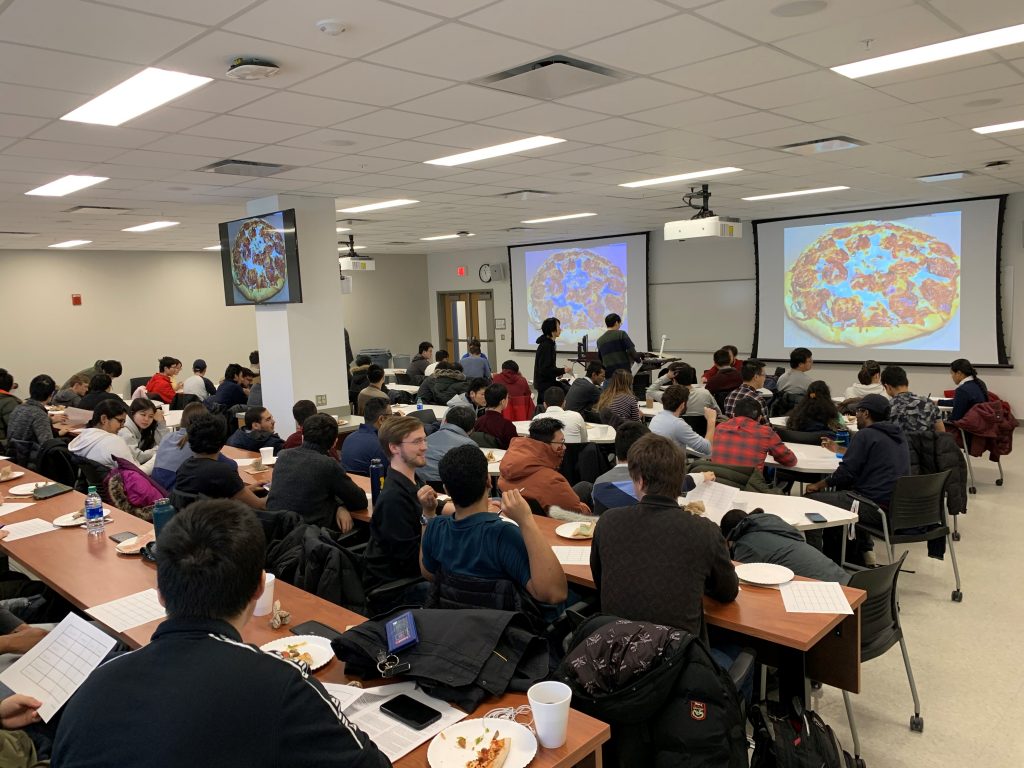Of all of the contributions that I have made to the Grainger College of Engineering, I may be most proud of the work that I have been able to contribute to the iELITE (Integrated Engineering Leadership Initiative for Teaching Excellence) team. This team was formed in the Spring of 2016 and funded by the Academy for Excellence in Engineering Education (AE3) as a start-up SIIP (Strategic Instructional Innovations Program) project and funded for the following three academic years. The project was formed initially as the brainchild of Dr. Matt Goodman in Materials Science and Engineering. I was honored to be the second team member, followed shortly by Dr. Yuting Chen (ECE) and Dr. Mattox Beckman (CS). Together, our core team built a groundbreaking one-semester course that was soon required to be taken by graduate teaching assistants in the four largest departments in the GCOE (MechSE, ECE, CS, and CEE). Today, the course is led by a large team of excellent teaching faculty from five GCOE departments, AE3, the Center for Innovation in Teaching and Learning (CITL), and it continues to break new innovative ground each semester, most recently through increased opportunities for our TAs to hone their teaching skills through Service Learning in the local K–12 system throughout the Champaign-Urbana community.
Course Philosophy
We designed this course with the belief that most of our graduate students mean well and are motivated to do a fine job in their roles as teaching assistants. And most of our faculty members would agree with that assessment. But faculty members can also recall a horror story or two about what can go wrong when a TA lacks that motivation. We designed our course primarily with those TAs in mind. If we can get lowest quartile of underperforming TAs to do as well as the next quartile, we will have been successful. If the rest of the TAs improve as well, even better.
What motivates a teaching assistant? Most are intrinsically motivated to do well. They take pride in being successful. There may be some who are inspired by extrinsic motivations as well, such as getting high evaluations or winning an award for excellent teaching. We hypothesize that the lowest performing TAs are de-motivated. They probably are not planning an academic career, so they do not care to teach well. Most likely they aspire to use their graduate degree to get ahead in an industry career, so they came to graduate school to do research and wrap up their degree(s) as quickly as possible to get to that next step in their plans. But then a Research Assistantship didn’t materialize for some reason and they felt like the TA was their only option to support themselves.
We therefore designed this course with an alternative motivation system in mind using the following tenets:
- Every skill that we teach must be presented as a transferable skill that could be used in industry. We also tried to go two ways with this by including leadership topics as well as teaching.
- The course will not merely be a series of seminars. Every lecture will include significant interactions, such as group discussions and Think-Pair-Share activities. We theorize that de-motivated students may benefit from seeing how most of their peers operate with a good-faith motivation. It seems more likely that good attitudes will be learned osmotically than bad attitudes.
- We practice what we preach, giving this a meta-course feel. For example, we teach Active Learning using active learning techniques, we teach rubrics with something tangible of which they can debate the many dimensions for assessment (usually cookies or pizza, while we feed them cookies or pizza), we conduct Informal Early Feedback with the students but we also analyze their results in front of them to show them how to interpret positive and negative feedback, etc.

Partners and Regular Reflections
The SIIP program requires grant awardees to meet regularly to create communities of practice. Since the inception of the project in 2016, we have meet for about 40 weeks every year. During the semesters we begin each team meeting with an honest reflection of how the previous week’s session went. Meeting minutes are carefully documented so that we do not forget which improvements should be made in the upcoming semester. When we bring in a guest lecturer, we always meet with them at least one or two weeks before their talk to review their content and discuss the prescient logistics of our class with them.
Guest lecturers have come from many places. We host a panel of experienced TAs near the beginning of each semester. Leadership topics have been taught by fellows in the Illinois Leadership Center as well as faculty in the ROTC program. Assistant deans talk about how to handle possible academic integrity violations, representatives of CITL speak about educational topics such as rubric design and student motivation, AE3 fellows discuss and demonstrate Active Learning techniques. Experts in mental health talk about means to address severe student concerns, as well as handling the Imposter Syndrome that affects so many people in higher education.